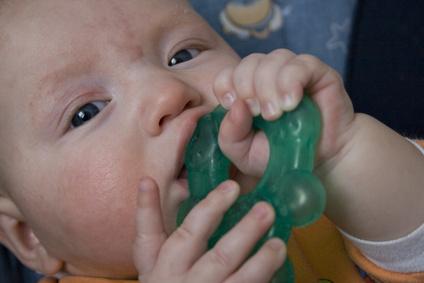If your dreams of breastfeeding your infant and then calmly putting her down for a nice nap have been shattered by hours of incessant, loud crying, you may have a colicky baby. Occasional fussiness is one thing–colic is quite another. If your otherwise healthy baby cries for more than three hours on at least three occasions during the week, she may have colic. Colic is equally common among breastfed and bottle-fed infants.
Colic
Colic usually begins in infants who are around 2 weeks old and can last until they are 4 months old. About one in five infants develops colic, according to the University of Maryland Medical Center. Other colic signs are a baby who kicks often, pulls his legs close to his stomach and makes tight fists.
Stomachache
No one knows for sure why some babies get colic, but because it appears to be a problem with a stomachache, your baby may be reacting to certain foods you are eating if you breastfeed. Your baby may have an immature digestive system or may simply be getting too much air when feeding.
A Doctor’s Help
If you have a colicky baby, you should discuss this with your doctor. She will probably want to know the types of food you are eating if you breastfeed and can probably give you suggestions on some better choices you can make, according to the University of Maryland Medical Center. If you change your diet and your baby still has colic, your doctor may check her for allergies or for a digestive problem.
How to Nurse
You should nurse your colicky baby whenever he seems hungry. This could be every two or three hours. It might also help if you hold your baby’s head up when you breastfeed. Make sure to burp your baby often. After you burp your baby, try holding him across your lap, massaging his back. You can also try holding your baby and walking with him.
Foods
Certain foods you might want to avoid are caffeine, dairy products, soy products, citrus fruits, cabbage, broccoli, cauliflower, strawberries, nuts, garlic and spicy foods. Probiotics, or friendly bacteria, that you can get in acidophilus, may help, according to the University of Maryland Medical Center.





